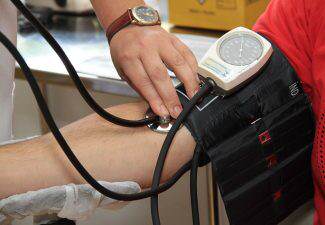
Even though roughly 61% of all filed medical malpractice cases end up being settled rather than making their way to court, it’s critical to be familiar with the court process. We’ll explain it in this article.
When Does a Medical Malpractice Case Go to Court?
The trial stage is the next step in the process if no settlement is reached and no dismissal is issued by the courts.
How Long Does a Medical Malpractice Court Trials Last?
Typically, most medical malpractice trials can last from 5-10 days. It’s rare for such cases to last several weeks, but some do. Also, it’s not unheard of for such trials to be decided in less than a week.
How Is The Jury Chosen in a Medical Malpractice Case?
Want to impress your friends? Tell them what the term “voir dire” means. It’s actually a French term that means “to see to speak,” and is the legal definition of the questioning of prospective jurors by attorneys from both sides and the judge in court.
This part of the process is crucial because its purpose is to determine if any of the prospective jurors are biased or can’t be trusted to fairly handle the case details. To decide upon jurors, they are asked about their backgrounds and beliefs.
Both attorneys and the judge have the option of eliminating potential jurors who are thought to be biased. Once a full jury is selected, they’re sworn in by the judge, who also provides them with rules related to the trial and court decorum.
Which Lawyer Goes First In A Medical Malpractice Trial?
As the trial kicks off in earnest, both attorneys will introduce various pieces of evidence to support their claims.
The plaintiff’s attorney gets first dibs in calling their witnesses. It’s typical for you (the plaintiff) to be called as a witness. Others likely to be called include your spouse or other family members as well as healthcare professionals.
After each witness has been questioned by your attorney, the defense’s attorney will get their turn in cross-examination. Remember, the defense attorney’s goal is to bring about testimony that takes away from your case.
After all the witnesses for your side have been called and cross-examined, the defense attorney will call theirs’, each of whom will be cross-examined by your attorney.
Because the burden of proof is on you, the plaintiff, your attorney will open and finish the case with a closing argument. The defense attorney will make a closing argument as well, but will go before your attorney.
When Does The Jury Make Their Decision?
After closing arguments have been made, the jury will move to the jury room to review aspects of the trial. It’s not uncommon for them to send written requests to the judge if there is confusion.
It can take minutes or days for most juries to reach their decision. Most commonly, their decision is reached inside a couple of hours.
Once they’ve reached a verdict, they’ll notify the judge and make their way back to the courtroom. The judge will normally read the verdict on behalf of the jury.
Rather than pronouncements of “guilty” or “not guilty,” the verdict will be presented in question and answer format. For example, “Did the negligence of the defendant cause the injury in question?” If the answer is “yes,” you win.
Then, the jury will answer additional questions about what to award for damages.
If You’ve Experienced Medical Malpractice, Call The Fitzgerald Law Firm
One of the most essential keys to winning a medical malpractice case is being prepared. With well over 40 years of experience in securing favorable verdicts and awards for our clients, we excel at preparation.
For a free consultation, call us here at The Fitzgerald Law Firm. Our number is 800-323-9900.

